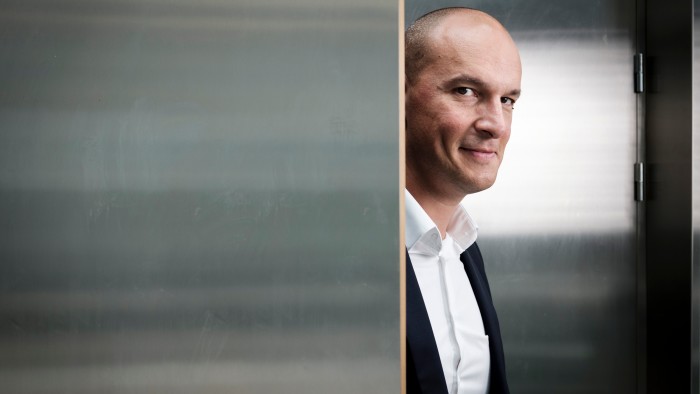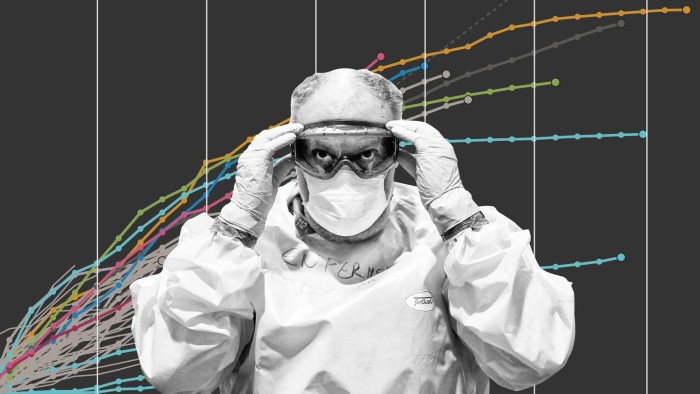The globetrotting degree, grounded: executive MBAs in the pandemic

Roula Khalaf, Editor of the FT, selects her favourite stories in this weekly newsletter.
Jérôme Pouzou was all set to travel to New York, Bangalore and Accra when the French government locked down the country in March. Like many executive MBA students, he saw keenly anticipated study trips shelved because of travel restrictions.
“This large range of international learning experiences was a reason to apply for the programme,” says Pouzou, a participant on the global EMBA at Neoma business school. “It was an opportunity for valuable and constructive discussions with various local actors. I was disappointed, but it wouldn’t be responsible to travel abroad and overlook all the risks. Neoma responded quickly, with a lot of agility,” adds the director of operational development at advertising company ExterionMedia France.
All schools have had to adapt programmes, but a quick response was perhaps most needed for EMBAs, which sell themselves on trips overseas, international projects at partner schools on different continents and sit-down lunches with global chief executives. Many EMBAs promise a chance to gain both a degree and international experience.
While most schools have switched to online learning, questions remain as to how they can hope to replicate this lost international experience and whether participants will feel they are still receiving value for money.
“Although the trips were postponed, we’ve asked our participants to work on specific assignments dedicated to globalisation and topics related to these countries,” says Neoma dean Delphine Manceau. She says students are also offered new classes on topics such as resilient leadership and leading global initiatives. “Our main goal is to secure the value of our EMBA despite the current circumstances.”
Importantly for Pouzou, his cohort has been invited to attend next year’s international trips, assuming travel restrictions have eased. “It will be an opportunity to enlarge our network because we will share the experience with the next cohort,” he says.
Like Neoma, IMD had to cancel “discovery expeditions” to China, Brazil, the US, Kenya and Israel. The Swiss business school gave participants a choice: delay graduation to complete the expeditions once it is safe to travel again, or take new online content to achieve the same learning objectives.
“What we didn’t try to do is take an existing programme and just put it on a screen,” says Stefan Michel, dean of the EMBA at IMD. “Interacting with Chinese companies isn’t something we want to do in an online format. As soon as the borders open, we’ll take people again, as certain things you can only show there, on the ground. But both the visits and the virtual programmes allow you to immerse yourself, and in designing the online version we could draw on a wider range of speakers than we might have had in China.”
Participants have paid virtual visits to companies around the world, and while the discovery expeditions usually last five days, the virtual version runs as half-days over two weeks, giving participants time to manage situations in their workplaces during the pandemic.
Irina Sitdikova, a business executive officer at coffee company Nespresso in Moscow, is due to graduate from IMD in December. “Having to cancel those much-awaited trips was just one of the tough decisions to make and compromises to accept,” she says. “But the EMBA community and the school became a secure base for me and helped me a lot to deal with the crisis and the uncertainties.”
Having a “global” experience on an executive MBA is about more than one-off travel opportunities, argues Eric Weber, associate dean at Iese. He says his school embeds global aspects throughout the programme — from course content and case studies that are global in nature, to learning in small groups of classmates from different nationalities and cultures, guided by faculty from around the world. The four cohorts of this year’s EMBA programme at Iese’s campuses in Madrid, Barcelona, Munich and São Paulo will work together in small multi-geographical teams on virtual projects.
Managing expectations will continue to be critical, says Thomas Jeanjean, associate dean for post-experience programmes at Essec. But he says that, despite Covid-19, the French school is enjoying some of its best recruitment figures in recent history for next year’s EMBA.
“We’ve been open about the fact that all of the courses would take place online and that the international travel components . . . would likely be modified, so expectations have been aligned with the way in which the programme will be delivered,” Prof Jeanjean says.
Latest coronavirus news

Follow FT's live coverage and analysis of the global pandemic and the rapidly evolving economic crisis here.
He admits, however, that the situation has been more complicated for the current cohort, who were promised international residencies. Study trips to the US and Japan have been postponed, but Essec is bringing professors from its international campuses, in particular Singapore, to “import” the international experience to France.
“We’re also looking to replace international travel to countries on the other side of the globe with travel to countries in Europe, which haven’t closed borders with France,” Prof Jeanjean adds.
Another possibility for Essec’s EMBA participants, he says, hinges on the success of technology being piloted on its global MBA. Augmented-reality goggles will help to recreate the international experience with partner schools, bringing students together in a virtual “room” for events or potentially for company visits abroad.
Comments